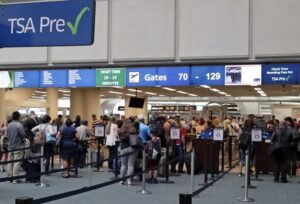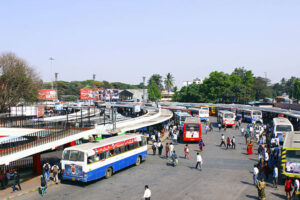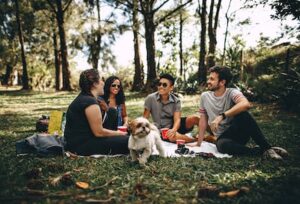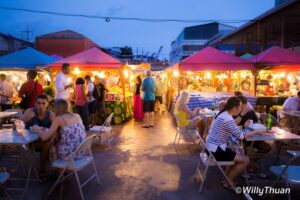
How to travel on a budget : 14 tips and hacks
Traveling on a budget can be both enjoyable and affordable. Here are some tips:
1. Plan Ahead:

To have a safe and fun trip, planning should be done in advance before the trip. By making plans, you can avoid obstacles and problems in your journey. Research and book accommodations, flights and activities in advance to take advantage of discounts and deals. By following these steps, you can make your trip more fun by planning ahead.
2. Set a budget:

Setting a budget before traveling is a smart way to manage your expenses. Here are some steps to help you create a travel budget:-
● Financial control: It helps in reducing your expenses. And this ensures that you will not return home with excessive expenses.
● Prioritization: Budget helps you to prioritize spending on important things.
● Stress Reduction: Knowing your financial limits reduces stress during your trip. So that you can enjoy the journey.
●Savings: You can save money for your trip in advance by planning and budgeting.
● Emergency Fund: Some money should be kept in the budget for unexpected expenses and emergencies so that your peace of mind remains.
3.Consider Alternative Airports:

Sometimes, flying into a nearby airport can be cheaper.
●Proximity: Look for an airport that is close to your home. Sometimes nearby airports prove to be more convenient.
● Cost: Compare ticket prices at both your primary and alternate airports and fly from the cheapest airport.
● Transportation: Consider whether going from the airport or by public transportation or a rental car is more convenient.
● Convenience: Keep your needs and preferences in mind during your trip. Airports that are less crowded may be more comfortable and have better facilities.
4. Choose budget accommodation:

Normal guest houses and budget hotels are often more affordable than luxury options.
●Online Booking: Use websites and apps like Booking.com, Airbnb, or Hostelworld to analyze costs and check reviews.
●Hostels: Hostels are usually budget-friendly options, with dorm-style or individual rooms furnished.
●Guesthouses: Look for regional guesthouses or family-run operations, which are often more affordable than hotels.
●Off-Peak Travel: Travel during the off-season in order to discover reduced rates and fewer people. ●Location: Pick accommodations a bit away from tourist attractions for cheaper rates.
●Amenities: Place importance on what you require; if you can manage without exclusive bathrooms or not having breakfast, you will economize.
5. Cook Your Meals:

Save money by preparing your own meals or eating at local street vendors.
●Cost Savings: If your budget is limited then eating out at restaurants can be expensive. Cooking your own food can help you save money.
●Dietary Preferences: When you cook your meals, you have complete control over the ingredients you use, taking into account dietary restrictions or preferences.
●Healthy Choice: Home cooked food is often good for health. In this you can prepare healthy food using fresh ingredients.
●Convenience: It is convenient to prepare simple meals while traveling. In this you do not have to depend on the timing of the restaurant, you can cook food whenever and wherever you want.
●Cultural Experience: Cooking local dishes or trying new dishes during travel can be fun. And an immersive way to experience local culture and cuisine.
6. Use Public Transportation:

Public buses and trains are usually cheaper than taxis or rental cars.Using public transportation while traveling has many benefits. This is often more eco-friendly than driving alone, reducing your carbon footprint. Public transportation is low-cost, which can save you money on fuel and parking.Plus it can provide a more immersive cultural experience, where you interact with local people, spend time with them and get a unique perspective on a destination. However, this may not always be as convenient or flexible as private transportation, so it’s important to consider your specific travel needs and destination when making a decision.
7. Take Advantage of Free Activities:

Explore parks, museums, and landmarks that offer free admission.
●Explore nature: Hiking, biking, and visiting parks or beaches are often free and offer beautiful natural views.
●Museums and Galleries: Many cities have free museums, so check local listings.
●City Tour: By traveling on foot, you can roam around the city and get information about the history and places of the city.
●Cultural events: Enjoy local festivals, street performances or cultural events during your trip.
●Public Art: Enjoy street art, sculptures and architectural landmarks throughout the city.
●Visit markets: Visiting local markets can be a great way to experience the culture and taste the local food.
●Free Attractions: Some tourist attractions offer free admission on certain days or times, so plan accordingly.
●Enjoy Sunsets and Sunrises: Watch the sun rise or set at a scenic spot in the city or nature.
●People-Watching: Sometimes, simply observing daily life in a new place can be a fascinating experience.
8. Travel Light:

Avoid baggage fees by packing efficiently and using carry-on luggage.
●Convenience: Pack less luggage on your travels, carrying only what you need. This makes going through airports, train stations and other transport hubs much easier and less tiring.
●Cost Savings: Many airlines and transportation providers charge fees for checked bags, and these fees can add up quickly. If you have less luggage then it can help you avoid these extra travel expenses.
●Flexibility: With fewer belongings, you’re more flexible in terms of your travel plans. You can easily switch between different modes of transportation, navigate crowded areas, and adapt to unexpected changes in your itinerary.
●Speed: When you don’t have to wait to be checked in or deal with excess luggage, you can save valuable time, especially when catching connecting flights or trains.
●Security: If you have less luggage, you are less likely to lose or misplace your items, and you are less of an attractive target for thieves.
9. Seek Local Advice:

Ask locals for recommendations on affordable dining and activities.
It is very beneficial to take advice from local people while travelling. Locals can provide information about good places to visit, hidden gems, cultural norms, and safety tips that may not be found in guidebooks and online resources. They can also refer you to local cuisine and help you experience the destination more authentically.
10. Travel Slowly:

Spending more time in one place can reduce transportation costs.
●Cultural Immersion: Slow travel allows you to immerse yourself in local culture, interact with locals and gain a deeper understanding of the destination.
●Stress Reduction: Wander at one place for a long time and enjoy the journey comfortably. Running around can be stressful.
●Cost Savings: Traveling slowly often doesn’t cost much, as you can take advantage of long-term accommodation options and avoid expensive last-minute bookings.
●Sustainability: Slow travel can be more sustainable, as it reduces your carbon footprint and supports local economies.
●Better Experience: When you travel slowly, you have more time to visit a place properly and you can enjoy your journey properly.
11.Be Flexible:

Be open to last-minute deals and changes in your itinerary.
Being flexible can be quite beneficial when traveling. It helps you adapt to changing circumstances, make the most of unexpected opportunities, and reduce stress when things don’t go according to plan. Whether it’s adjusting your itinerary, trying new experiences, or being prepared for last-minute changes, flexibility can enhance your travel experience.
12. Avoid Tourist Traps:

Research and avoid overpriced tourist areas and restaurants.
●Cost Savings: Tourist traps often charge higher prices for goods and services. By avoiding these you can save money on your journey.
●Authentic experiences: By staying away from crowded tourist areas, you can discover more authentic and local experiences, such as trying local cuisine or interacting with locals.
●Less Crowd: Due to crowding at tourist places, the enjoyment of the trip may be reduced. Exploring lesser-known places can provide a more peaceful and enjoyable experience.
●Unique Discoveries: Avoiding the tourist traps allows you to visit hidden gems and unique attractions that aren’t crowded with tourists.
●Cultural understanding: Interacting with local people and experiencing their way of life provides a deeper understanding of the culture and traditions of the place you are visiting.
13. Travel with a Group:

Sharing expenses with friends or family can reduce costs.
●Shared costs: Traveling with a group allows you to split expenses like accommodation, transportation and food, resulting in significantly less travel expenses.
●Safety: Being with a group can increase your safety, especially in unfamiliar or potentially risky destinations.
●Social experiences: Group travel provides the opportunity to meet new people, form friendships, and share experiences, which can enhance the enjoyment of travel.
●Shared Responsibilities: Tasks like planning, navigation, and decision-making can be distributed among group members, reducing individual stress.
●Access to Discounts: Larger groups may qualify for group discounts on tours, activities, or accommodations.
●Diverse Perspectives: Traveling with a group can expose you to different viewpoints and preferences, enriching your travel experience.
14. Monitor Expenses:

Keep track of your spending to stay within your budget.
●Budget management: Keep track of expenses so you know if you’re spending within your budget, ensuring you don’t overspend and allowing you to allocate money to different aspects of your trip. Permission is granted.
●Avoid overspending: It prevents financial stress by helping you take informed decisions about unnecessary expenses and where to cut back.
●Record Keeping: Keeping records of expenses can be useful for reimbursement purposes, and for tax deductions if your travel has business-related expenses.
●Financial security: Keeping records of expenses helps in insurance claims in case of theft or loss of goods. Could.
●Future planning: This helps you narrow down your spending habits, allowing you to plan future trips more effectively and efficiently.
Remember, budget travel can be an adventure in itself, and with careful planning, you can enjoy amazing experiences without breaking the bank.



4 Comments
Shamim
It’s a very helpful content for us❤️
Pingback:
Pingback:
Pingback: